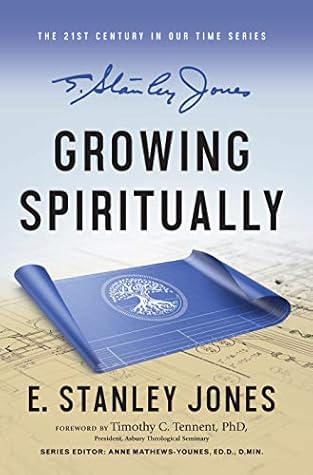Growing Spiritually: Revised Edition
by E. Stanley Jones
This book by E. Stanley Jones is designed to be read over an entire year. Each day there are scriptural verses, a meditation, a prayer and a thought for the day. Christians have used guides like this for their daily devotional life since the rise of Pietism in the 17th century. However, most of these devotional guides go quickly out of print because they are so bound to the particular issues and challenges of a single generation. However, this spiritual devotional guide is timeless and profitable for any Christian in any place or time. There are few that meet this criteria. Oswald Chamber’s My Utmost for His Highest is one example. Another would be Table in the Wilderness by Watchman Nee. These classics have never been out of print because the church has found them both edifying and profitable. Growing Spiritually by E. Stanley Jones deserves to take its place among these timeless devotional guides. The reason is that Jones sets out not simply to inspire you, but to directly address the timeless issues which Christians face which hinders their growth in discipleship.May this new publication of E. Stanley Jones be read and appreciated by a whole new generation of Christians. For, as Jones states in the opening line of this devotional, “you are made to grow.” May this volume help you to do just that.- Timothy C. Tennent, PhDPresident, Asbury Theological Seminary
BUY NOW
Kindle Edition
Published September 19th 2019 by The E. Stanley Jones Foundation
© 2025 Bibleportal.com 版权所有.

Eli Stanley Jones was a 20th century Methodist Christian missionary and theologian. He is remembered chiefly for his interreligious lectures to the educated classes in India, thousands of which were held across the Indian subcontinent during the first decades of the 20th century.
Jones was born in Baltimore, Maryland. After attending Asbury University, he became a missionary in the Methodist Episcopal Church. He traveled to India and began working with the lowest castes, including Dalits. He became close friends with many leaders in the Indian Independence movement, and became known for his interfaith work. He said, "“Peace is a by-product of conditions out of which peace naturally comes. If reconciliation is God’s chief business, it is ours—between man and God, between man and himself, and between man and man.” He was nominated for Nobel Peace Prize for his reconciliation work in Asia, Africa, and between Japan and the United States.
... Show more